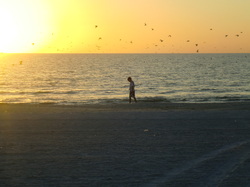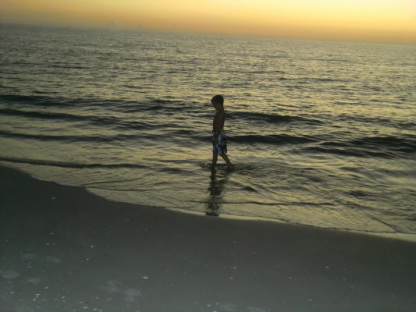
The past few weeks I have emphasized to my Pilates clients the importance of breathing--not breathing to stay alive--but breathing to feel alive. The lungs inflating like balloons, the ribcage expanding like an accordion, the abdominals gently wringing out the air makes us conscious of the mechanics of breathing. Pilates is a mind/body practice as Joe Pilates himself said, "It is the mind that builds the body." Once we learn to breathe correctly we discover our body is more responsive to the idea of exercising with a "relaxed effort."
Financial stressors, relationship problems, health concerns, troubling world news, even politics contribute to an agitated, nervous, anxious feeling. The sympathetic nervous system (SNS) secretes hormones such as adrenaline and cortisol during perceived stressful events. In many cases we are living in the sympathetic nervous system. This is unhealthy for our body, decreasing our immunity, disrupting sleep patterns, and contributing to depressive symptoms. Frequently clients arrive to class exhibiting stress and frustration and, without a few moments of gentle breath work, would likely exercise in this frantic, frenzied spirit.
When we are rigid and uptight we can't swing a racquet, golf club, or even stretch effectively. Pro athletes likely know the secret to optimal performance comes from executing their talents with a relaxed effort. When we have this "relaxed effort" we are functioning in our parasympathetic nervous system. This is where we heal, we focus, we stop trying so hard and we have fun. The idea of not having to be perfect, of not trying so hard, but simply enjoying being good might be a novel idea. Ever notice we play better when we are relaxed? It's because we are physiologically living/playing/performing within our parasympathetic nervous system. My favorite way to access the parasympathetic system is to breathe. The best way to relax is to breathe...which is why Joseph Pilates said to let the first lesson in Pilates be about breathing.
It is rarely effective for someone to repeatedly tell me to relax. Ever go to the dentist office and be instructed to relax? Did that help matters? Ever have to speak in public, instructing yourself to relax yet woefully aware of excessive perspiration? Even in something as non-threatening as tennis, if the pro suggests I "relax" I will probably stiff-arm the ball into the stratosphere. If however my instructions are to loosen, soften, bend, or breathe the outcomes will be more positive. We can't command someone to relax--I feel tense just thinking about it. What we can do, independently and irregardless of the circumstance, is breathe. The stressful situations today are different from the stress of the caveman, where fight or flight actually worked, but nonetheless our body responds to the the stressors just the same. For this reason, because we can't fight or flee the holiday party, the family reunion, the mortgage payment, the rude driver, we must have a strategy for eliminating the by-products of stress in order to live in a relaxed state. This strategy is hopefully a healthy one like deep breathing.
It has taken me more years than I will confess to understand my personal experience does not have to be affected by another person's attitude or behavior. Just because you are _____ (fill in the blank: uptight, critical, frantic, or uncomfortable) doesn't mean I have to be _____ (fill in the blank: uptight, critical, frantic, or uncomfortable). Nothing personal of course! By using the breath-work skills developed in Pilates and yoga we can all practice playing, working, connecting and simply being in this relaxed, healthy, good (but not perfect), space.
Thank you for reading!
Financial stressors, relationship problems, health concerns, troubling world news, even politics contribute to an agitated, nervous, anxious feeling. The sympathetic nervous system (SNS) secretes hormones such as adrenaline and cortisol during perceived stressful events. In many cases we are living in the sympathetic nervous system. This is unhealthy for our body, decreasing our immunity, disrupting sleep patterns, and contributing to depressive symptoms. Frequently clients arrive to class exhibiting stress and frustration and, without a few moments of gentle breath work, would likely exercise in this frantic, frenzied spirit.
When we are rigid and uptight we can't swing a racquet, golf club, or even stretch effectively. Pro athletes likely know the secret to optimal performance comes from executing their talents with a relaxed effort. When we have this "relaxed effort" we are functioning in our parasympathetic nervous system. This is where we heal, we focus, we stop trying so hard and we have fun. The idea of not having to be perfect, of not trying so hard, but simply enjoying being good might be a novel idea. Ever notice we play better when we are relaxed? It's because we are physiologically living/playing/performing within our parasympathetic nervous system. My favorite way to access the parasympathetic system is to breathe. The best way to relax is to breathe...which is why Joseph Pilates said to let the first lesson in Pilates be about breathing.
It is rarely effective for someone to repeatedly tell me to relax. Ever go to the dentist office and be instructed to relax? Did that help matters? Ever have to speak in public, instructing yourself to relax yet woefully aware of excessive perspiration? Even in something as non-threatening as tennis, if the pro suggests I "relax" I will probably stiff-arm the ball into the stratosphere. If however my instructions are to loosen, soften, bend, or breathe the outcomes will be more positive. We can't command someone to relax--I feel tense just thinking about it. What we can do, independently and irregardless of the circumstance, is breathe. The stressful situations today are different from the stress of the caveman, where fight or flight actually worked, but nonetheless our body responds to the the stressors just the same. For this reason, because we can't fight or flee the holiday party, the family reunion, the mortgage payment, the rude driver, we must have a strategy for eliminating the by-products of stress in order to live in a relaxed state. This strategy is hopefully a healthy one like deep breathing.
It has taken me more years than I will confess to understand my personal experience does not have to be affected by another person's attitude or behavior. Just because you are _____ (fill in the blank: uptight, critical, frantic, or uncomfortable) doesn't mean I have to be _____ (fill in the blank: uptight, critical, frantic, or uncomfortable). Nothing personal of course! By using the breath-work skills developed in Pilates and yoga we can all practice playing, working, connecting and simply being in this relaxed, healthy, good (but not perfect), space.
Thank you for reading!

 RSS Feed
RSS Feed